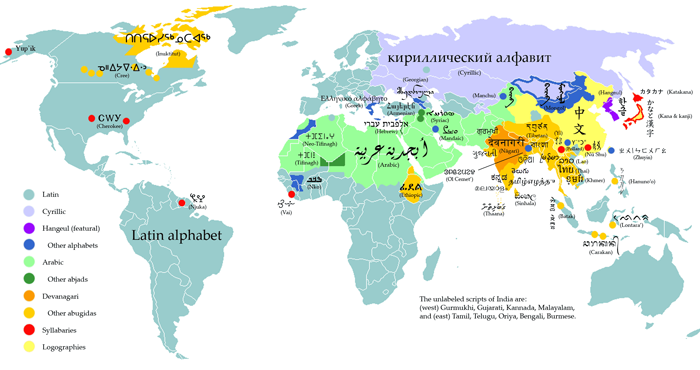Menu
Install the app
How to install the app on iOS
Follow along with the video below to see how to install our site as a web app on your home screen.
Note: This feature may not be available in some browsers.
You are using an out of date browser. It may not display this or other websites correctly.
You should upgrade or use an alternative browser.
You should upgrade or use an alternative browser.
Greek Mythology Community
Anoyone know What these letters mean? Picture below
- Thread starter Hennyb
- Start date
1 - 2 of 2 Posts
Rízes Hellenic Genealogy
New member
This is a very poor representation of Greek History/Mythology and it's writing. Who ever designed this does not know what they were doing/creating.
The people here are Perseus holding the head of Medusa (seen below)

As for the text... It's Mongolian and NOT Greek. (see below)

 www.smashingmagazine.com
www.smashingmagazine.com
Whoever designed this for you should give you a refund. LOL...
The people here are Perseus holding the head of Medusa (seen below)

Perseus with the Head of Medusa Metal Print by Zbignev Leonovic
Purchase a metal print of the drawing "Perseus with the Head of Medusa" by Zbignev Leonovic. All metal prints are professionally printed, packaged, and shipped within 3 - 4 business days and delivered ready-to-hang on your wall. Choose from multiple sizes and mounting options.
fineartamerica.com
As for the text... It's Mongolian and NOT Greek. (see below)

The Beauty Of Typography: Writing Systems And Calligraphy, Part 2 — Smashing Magazine
The beauty of writing systems is that each has something unique from which to draw inspiration. Two weeks ago, [in the first part of this article](https://www.smashingmagazine.com/2010/05/18/the-beauty-of-typography-writing-systems-and-calligraphy-of-the-world/), we covered Arabic and East-Asian...
Whoever designed this for you should give you a refund. LOL...
1 - 2 of 2 Posts
JOIN THE DISCUSSION AND READ OTHER GREEK INFO:
List of fun Greek mythology topics
- nadellii
- Greek Mythology Forum
- Replies: 1
I really love Greek Mythology. I thought I would share with you all some of my favorite topics:
- Birth of the Olympians and how they came to power
- Different heroes of Greek mythology
- 12 Labors of Hercules
- Trojan War
- Iliad and the Odyssey and all the stories in them
- The story of Persephone
- Pandora's box
- Different creatures - like the Minotaur and Hydra
Hestia Greek Goddess Information
- voula_slat
- Greek Mythology Forum
- Replies: 2
We don't talk about Hestia much... but I just remembered that my yiayia did! I wondered why, so I researched her. Here is what I found... I think it has something to do with the fact that she was a housewife and she loved her family.. Looking at what she represents, it kind of makes sense. Here's what I found about her:
The Greek goddess Hestia was revered as the goddess of the hearth and home. In ancient Greek mythology, she was known to be a benevolent deity, who brought warmth and comfort to the home. Through her presence, she blessed the family and provided them with a sense of safety and security.
Hestia was the first-born child of Cronus and Rhea, and she was the sister of other Olympian gods such as Zeus, Poseidon, and Hades. Unlike her brothers and sisters, she did not engage in any power struggles or battles. She preferred to remain neutral and instead focused her attention on her household duties. Hestia was considered one of the most important deities, as the hearth represented the heart of the home. People would light a fire in her honor and worship her by placing offerings of food and drink on their hearth.
In ancient Greek culture, a hearth was often considered the most important part of the home. It was where food was cooked, and family members gathered to eat, share stories, and bond. Hestia's role in domestic life was crucial, and she was responsible for creating the warmth and sense of security felt within the home. Her presence was believed to bring good luck and happiness to the family.
The Greek goddess Hestia was revered as the goddess of the hearth and home. In ancient Greek mythology, she was known to be a benevolent deity, who brought warmth and comfort to the home. Through her presence, she blessed the family and provided them with a sense of safety and security.
Hestia was the first-born child of Cronus and Rhea, and she was the sister of other Olympian gods such as Zeus, Poseidon, and Hades. Unlike her brothers and sisters, she did not engage in any power struggles or battles. She preferred to remain neutral and instead focused her attention on her household duties. Hestia was considered one of the most important deities, as the hearth represented the heart of the home. People would light a fire in her honor and worship her by placing offerings of food and drink on their hearth.
In ancient Greek culture, a hearth was often considered the most important part of the home. It was where food was cooked, and family members gathered to eat, share stories, and bond. Hestia's role in domestic life was crucial, and she was responsible for creating the warmth and sense of security felt within the home. Her presence was believed to bring good luck and happiness to the family.
Janus - God of Beginnings
- paharo45
- Greek Mythology Forum
- Replies: 4
I learned recently of Janus, the Roman God of Beginnings. The month January, I believe, is named after this God.
Many of the Roman Gods and Goddesses have Greek counterparts. Does Janus?
If so, I think that would be an interesting god to learn about. I have to be honest - I am not sure there is a counterpart. I have been searching but there either isn't enough information online, or there really is no equivalent.
Do you guys have any idea?
Many of the Roman Gods and Goddesses have Greek counterparts. Does Janus?
If so, I think that would be an interesting god to learn about. I have to be honest - I am not sure there is a counterpart. I have been searching but there either isn't enough information online, or there really is no equivalent.
Do you guys have any idea?
Afterlife Beliefs in Greek Mythology?
- toniiv
- Greek Mythology Forum
- Replies: 1
What did Ancient Greeks believe about the afterlife? I've heard a few different stories... I'm particularly drawn to Ancient Greece's take on life after death.
Was there a uniform belief system, or did it vary significantly among different cities or periods? How did their beliefs influence their daily life and practices? I'm also curious about the role of mythological figures like Hades and the concept of Elysium.
If anyone has any expertise, recommended readings, or can point me to resources where I might be able to gather detailed insights into these spiritual aspects of Ancient Greek culture, I would greatly appreciate it.
Was there a uniform belief system, or did it vary significantly among different cities or periods? How did their beliefs influence their daily life and practices? I'm also curious about the role of mythological figures like Hades and the concept of Elysium.
If anyone has any expertise, recommended readings, or can point me to resources where I might be able to gather detailed insights into these spiritual aspects of Ancient Greek culture, I would greatly appreciate it.
Question about the Fates of Greek Mythology
- d_kakavouli
- Greek Mythology Forum
- Replies: 0
I am helping someone gather information for a school project on Greek Mythology so your input is much appreciated. This is more like, to help the person know enough information to be able to research it.
The project is about the Fates. These mysterious beings, often depicted as three sisters—Clotho, Lachesis, and Atropos—were believed to control the destiny of every mortal and god alike. Their thread-spinning, measuring, and cutting symbolized the weaving of each individual's life, from birth to death.
But what exactly was the extent of their power? How did they interact with other gods and mortals? These questions have sparked endless fascination and speculation among scholars and enthusiasts alike.
Were the Fates merely impartial observers, executing predetermined destinies without interference? Or did they possess agency, actively shaping the lives of those they governed? Furthermore, what implications did their existence hold for concepts of free will and determinism in ancient Greek thought?
The project is about the Fates. These mysterious beings, often depicted as three sisters—Clotho, Lachesis, and Atropos—were believed to control the destiny of every mortal and god alike. Their thread-spinning, measuring, and cutting symbolized the weaving of each individual's life, from birth to death.
But what exactly was the extent of their power? How did they interact with other gods and mortals? These questions have sparked endless fascination and speculation among scholars and enthusiasts alike.
Were the Fates merely impartial observers, executing predetermined destinies without interference? Or did they possess agency, actively shaping the lives of those they governed? Furthermore, what implications did their existence hold for concepts of free will and determinism in ancient Greek thought?
Share and discuss Greek mythology!
WorldwideGreeks.com is a free online forum community where people can discuss Greek food, travel, traditions, history and mythology.
Join Worldwide Greeks here!
Join Worldwide Greeks here!
JOIN COMMUNITY FOR FREE
LOGIN TO YOUR ACCOUNT



